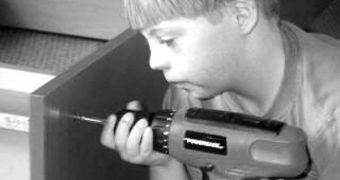Thanks to a new battery of tests created by researchers in the United States, analyzing the congruity abilities of people suffering from Down Syndrome is now easier and more accurate than ever.
The innovative new analysis tool was produced by neuroscience experts at the University of Arizona Down Syndrome Research Group.
The UA team collaborated closely with colleagues from the Johns Hopkins University (JHU) and Emory University, ScienceDaily reports.
One of the most important aspects of the new battery of tests is the fact that it is not dependent on language. This is bound to make applying the tests easier, experts say.
The tests basically consist of a series of computer exercises, which can be completed in a short period of time. The tool is bound to make diagnostics a lot easier than ever.
Importantly, the tests can be used to assess the path of development Down patients take. This is important because the condition evolves differently in each individual, which means that therapies need to be personalized as well.
New type of therapies, including drug and behavioral interventions, could also become possible after the battery of tests is applied to large numbers of patients.
Details of the new investigation appear in the latest issue of the esteemed scientific Journal of Neurodevelopmental Disorders. The tests can be applied in about two hours, researcher says.
Additionally, they are also portable, which means that they can be taken to regions of the world where Down syndrome diagnostics are still rare, or even unheard of.
“In the past when we would assess cognition in Down syndrome it would be over the course of several days. This is really compact and practical,” says UA Psychology Department member Jamie Edgin.
“The point is that these tasks in the test battery have been selected because they really hone in on the particular functions of the brain regions,” says Lynn Nadel.
“What's equally important is that not only do they hone in on a particular brain region, but they also don't particularly depend on other brain regions. They're selective,” adds the expert, who is the Regents' Professor in psychology at the university.
“Tests take about two hours, which is key for a lot of these different studies because they need a set time. It's practical, which is a big thing for a lot of these studies,” Edgin adds.
“It's also one of the largest studies done in cognition on Down syndrome. We saw a large number of children across a wide range of variability,” the expert concludes.

 14 DAY TRIAL //
14 DAY TRIAL //